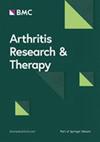Risk factors affecting the vital prognosis in patients with rheumatoid arthritis after primary cervical spine surgery: a retrospective study
IF 4.6
2区 医学
Q1 Medicine
引用次数: 0
Abstract
The effect of biologics on cervical spine lesions (CSLs) and vital prognosis in patients with rheumatoid arthritis (RA) remains unclear. This study investigated the risk factors for a poor vital prognosis in patients with RA requiring primary cervical spine surgery for CSLs. We retrospectively investigated 139 patients with RA who underwent primary cervical spine surgery between January 2001 and December 2020. The vital prognosis was calculated using the Kaplan–Meier method. Patient data were collected from medical records to analyse the risk factors for vital prognosis using univariate and multivariate Cox regression analyses. The vital prognosis was 62.7% at 10 years according to the Kaplan–Meier method. In univariate analysis, advanced age, lower serum albumin levels, high-dose prednisolone administration, non-use of methotrexate, and subaxial subluxation (SAS) comorbidity were significantly associated with a high risk of mortality. In multivariate analysis, advanced age, lower serum albumin levels, high-dose prednisolone administration, and SAS comorbidity were identified as risk factors for a poor vital prognosis. SAS comorbidity, high-dose prednisolone administration, lower serum albumin levels, and advanced age exacerbate the vital prognosis in patients with RA requiring primary cervical spine surgery. Strict disease control aimed at preventing CSL progression to SAS by maintaining the nutritional status and without using steroids is necessary to improve the vital prognosis of patients with RA.影响原发性颈椎手术后类风湿关节炎患者生命预后的危险因素:一项回顾性研究
生物制剂对类风湿关节炎(RA)患者颈椎病变(CSLs)和生命预后的影响尚不清楚。本研究调查了需要颈椎手术治疗CSLs的RA患者生命预后不良的危险因素。我们回顾性调查了2001年1月至2020年12月期间接受初级颈椎手术的139例RA患者。生命预后采用Kaplan-Meier法计算。从病历中收集患者资料,采用单因素和多因素Cox回归分析分析影响生命预后的危险因素。根据Kaplan-Meier方法,10年生存率为62.7%。在单因素分析中,高龄、低血清白蛋白水平、大剂量强的松龙、未使用甲氨蝶呤和下轴半脱位(SAS)合并症与高死亡率显著相关。在多因素分析中,高龄、低血清白蛋白水平、大剂量泼尼松龙和SAS合并症被确定为不良生命预后的危险因素。SAS合并症、大剂量强的松龙治疗、低血清白蛋白水平和高龄加剧了需要进行初级颈椎手术的RA患者的重要预后。严格控制疾病,通过维持营养状态,不使用类固醇,防止CSL发展为SAS,是改善RA患者生命预后的必要条件。
本文章由计算机程序翻译,如有差异,请以英文原文为准。
求助全文
约1分钟内获得全文
求助全文
来源期刊

Arthritis Research & Therapy
RHEUMATOLOGY-
CiteScore
8.60
自引率
2.00%
发文量
261
审稿时长
14 weeks
期刊介绍:
Established in 1999, Arthritis Research and Therapy is an international, open access, peer-reviewed journal, publishing original articles in the area of musculoskeletal research and therapy as well as, reviews, commentaries and reports. A major focus of the journal is on the immunologic processes leading to inflammation, damage and repair as they relate to autoimmune rheumatic and musculoskeletal conditions, and which inform the translation of this knowledge into advances in clinical care. Original basic, translational and clinical research is considered for publication along with results of early and late phase therapeutic trials, especially as they pertain to the underpinning science that informs clinical observations in interventional studies.
 求助内容:
求助内容: 应助结果提醒方式:
应助结果提醒方式:


